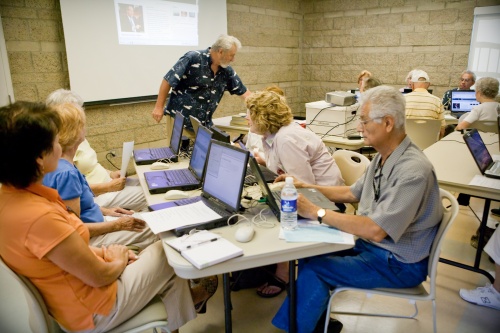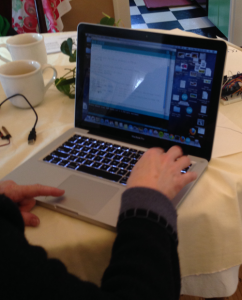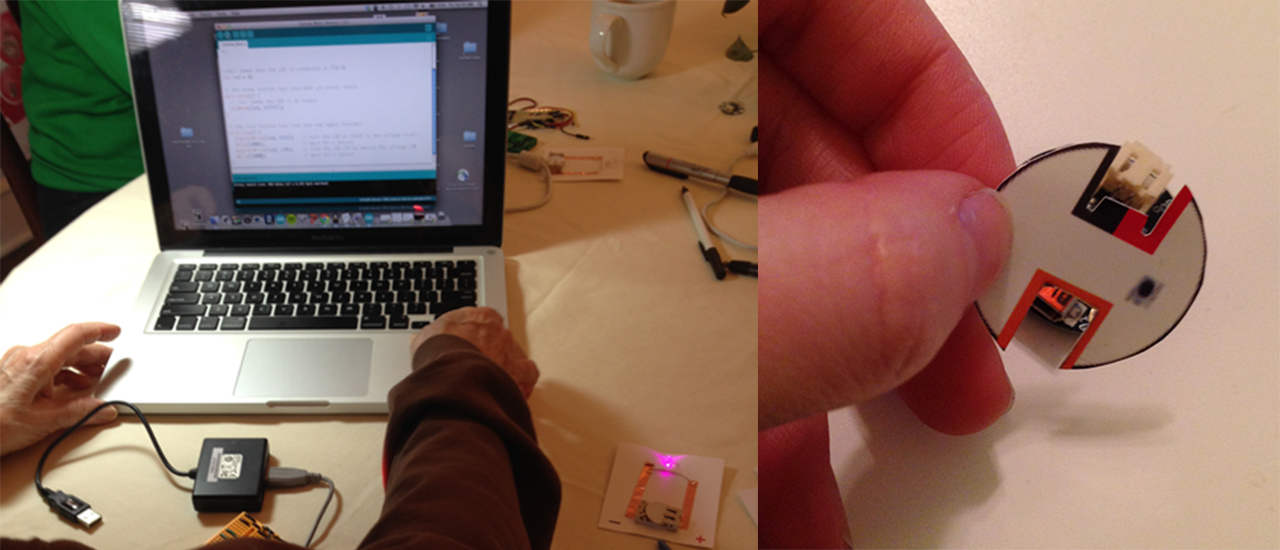 Electronic toolkits are an increasingly popular part of STEM curricula. From LEGO Mindstorms to littleBits, researchers pour considerable resources into developing the most effective learning tools for a young audience. Older adults have largely been left out trends like making interactive objects. They are pushed, instead, toward the most basic computer literacy: “Intro to Facebook” classes at senior centers or cell phones with “big buttons.”
Electronic toolkits are an increasingly popular part of STEM curricula. From LEGO Mindstorms to littleBits, researchers pour considerable resources into developing the most effective learning tools for a young audience. Older adults have largely been left out trends like making interactive objects. They are pushed, instead, toward the most basic computer literacy: “Intro to Facebook” classes at senior centers or cell phones with “big buttons.”
No one has addressed the possibility of introducing older adults to physical computing, even though the barriers are now low enough to accommodate elementary school students. If the constructivist approach of these kits for children creates deeper understanding of computers, would this framework be effective for lifelong learning? This project applies the constructivist toolkit model to an older adult audience.
Older adults are a diverse group that is often marginalized from technologies. Much of the literature on technology education and the elderly revolves around their supposed lack of knowledge, physical abilities or interest. Yet, researchers who have engaged in participatory design with seniors have found diversity in opinions, lifestyles, and willingness to learn and use new technologies.
 Senior citizens, in the so-called “third age” of life, are a great audience for projects that incorporate fabrication and programming. Although they were likely introduced to personal computers later in life, and may not be as fluent as younger digital natives, seniors possess other skills, developed over a lifetime of work and hobbies. This project aims to determine whether this rich reserve of life experience impacts older adults’ interest in and ability to use electronic construction kits.
Senior citizens, in the so-called “third age” of life, are a great audience for projects that incorporate fabrication and programming. Although they were likely introduced to personal computers later in life, and may not be as fluent as younger digital natives, seniors possess other skills, developed over a lifetime of work and hobbies. This project aims to determine whether this rich reserve of life experience impacts older adults’ interest in and ability to use electronic construction kits.
This project reviews related work in gerontechnology and the development of electronic toolkits in the constructivist tradition. A toolkit was designed, based on Arduino starter kits, but modified to address the needs of older users. The kit was used in a study with senior citizens in a one-hour workshop with a knowledgeable facilitator. By making simple adjustments to inexpensive off-the-shelf materials, physical computing can be made more accessible to lifelong learners in an informal educational setting.

